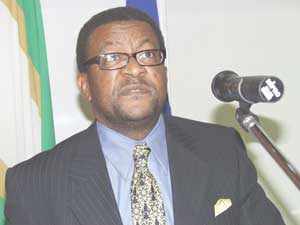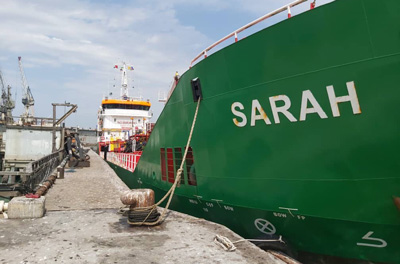
Efficient energy conservation systems

Professor Tjama Tjivikua, Rector of the Polytechnic of Namibia said the new Namibia Energy Institute will serve as a national think tank on energy conservation.
The establishment of the Namibia Energy Institute (NEI), recently launched by the Deputy Minister of Mines and Energy, Hon Willem Isaak, on behalf of Minister Isak Katali, is a transformation of the Renewable Energy Efficiency Institute (REEI) and seeks to promote industrialization by linking energy research, technology, policy and education to the needs of industry and to socio-economic development imperatives, initiatives and programmes.
The Namibia Energy Institute (NEI) is expected to contribute to Namibia’s industrialization through its four centres of competence namely, the Centre for Renewable Energy and Energy Efficiency, the Centre for Oil and Gas, the Centre for Electricity Supply and the Centre for Nuclear Sciences.
The government has committed a total of N$14.48 million over the next three years (N$3.7 million for 2016/17; N$5.78 million for 2017/18; and N$5million 2018/19), as seed funding to start developing the four centres of the institute. It is envisaged that this will put the country on a fast track to become energy independent.
Speaking at the launch of the Namibia Energy Institute (NEI), the Rector of the Polytechnic of Namibia, Professor Tjama Tjivikua said, “In our context, the establishment of the NEI is a strategic step to consolidate all endeavours in the energy field which would, in turn, facilitate and support industrialization and development in our country.”
Tjivikua outlined the functions of the NEI saying it is set against a background of rising electricity consumption and prices in Namibia, and an expected deficit in electricity generation from 2016 onward based on current forecasts of electricity demand.
According to Prof Tjivikua, Namibia only produces about 35% of its electricity needs and imports 65% from South Africa, Zimbabwe, Zambia and Mozambique.
“This electricity serves only about 650,000 people while the rest, about 1.6 million people rely on traditional energy sources such as firewood, and daylight,” said Tjivikua.
He added that an over-reliance on imports places Namibia in a position of vulnerability, where the country is dependent on the goodwill of the people it trades with, which is not sustainable in the long run.
Speaking on behalf of the Minister of Mines and Energy, Hon. Willem Isaak said the Ministry of Mines and Energy fully supports the establishment of the NEI and is committed to funding it fully, not only initially as a unit of the Polytechnic of Namibia but also later as an independent institute to enable it to fulfill its mandate successfully.
Isaak said the government is committed to include nuclear power as part of its energy mix for the future and will continue to promote nuclear energy as an important electricity supply option including the development of applicable legislation and regulations.
“It is now clear that, through deliberate policies, multi-pronged strategies and actions, the government is convinced that the energy sector will play a very important role in achieving sustainable development,” said Isaak.










































